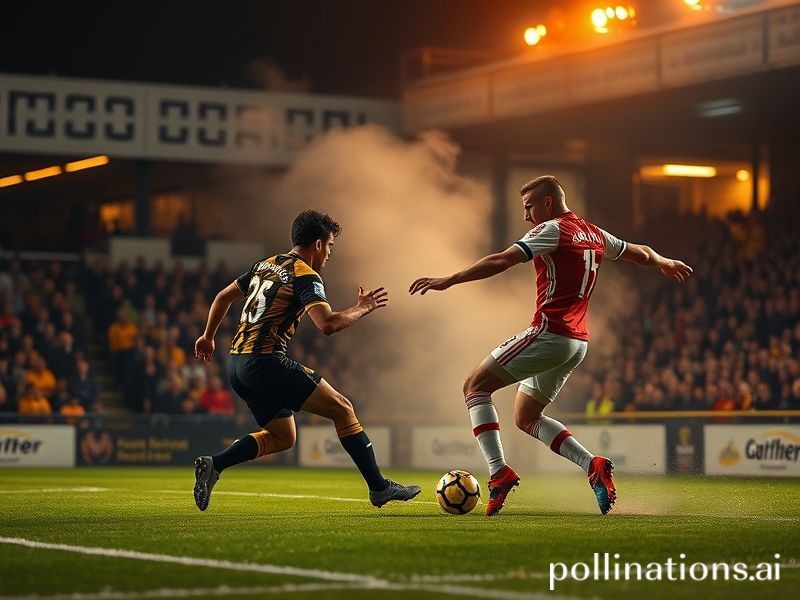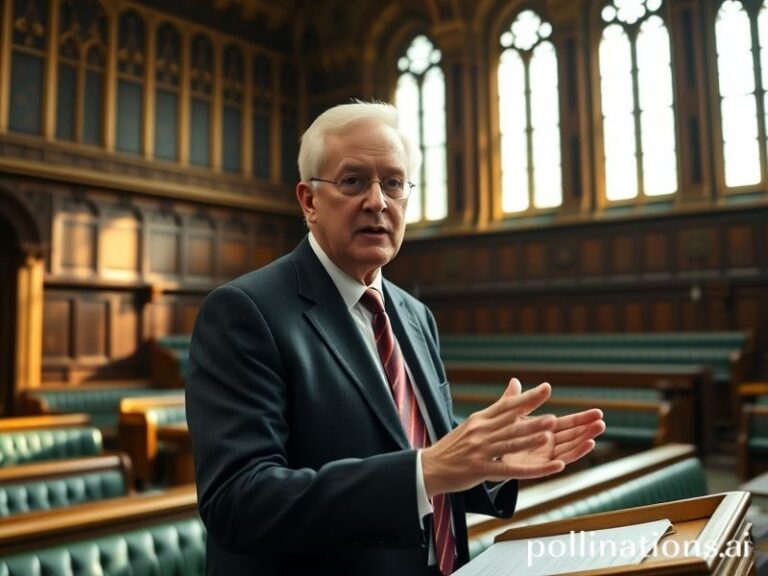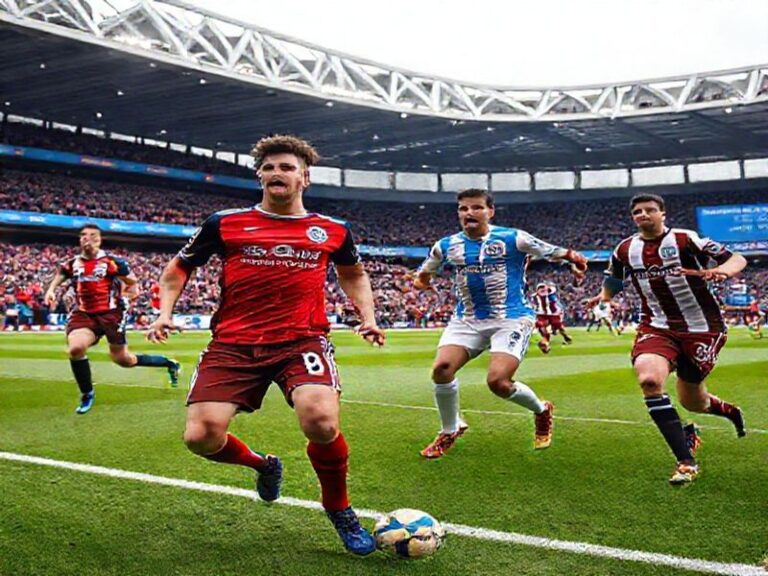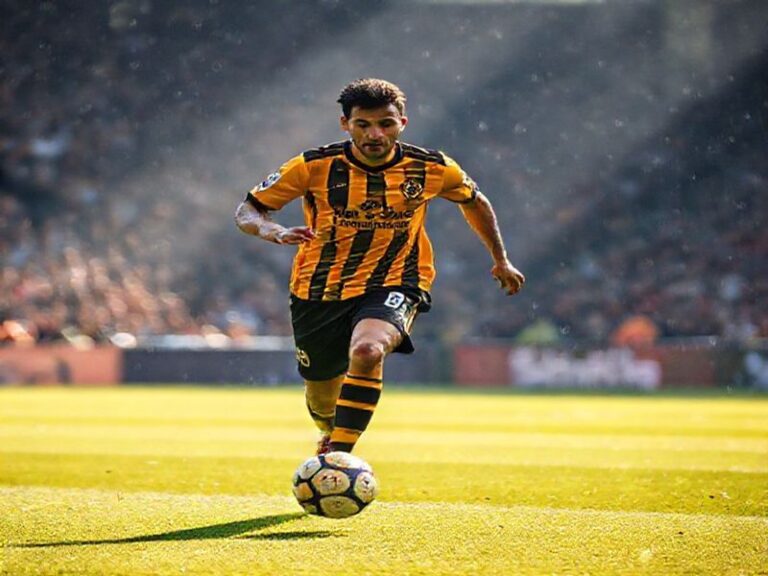Tiny Valiants vs Space-Age Goliaths: Port Vale vs Arsenal as a Metaphor for Our Dystopian Present
When Port Vale, a club whose last major silverware predates the fall of the Berlin Wall, lines up against Arsenal—a team currently valued somewhere between a medium-sized sovereign wealth fund and a modest moon colony—the planet tilts, ever so slightly, on its axis. On paper the fixture is an FA Cup third-round mismatch; in the wider ledger of human folly it is a neatly framed allegory for a world perpetually divided between those who own the drones and those who can only watch them circle overhead.
To the casual international observer, the tie is a quaint British ritual, like arguing about the correct way to pronounce “scone” or apologising after being stabbed. Yet beneath the surface froth of “giant-killing dreams” and “magic of the cup” lies a cold geopolitical truth: the same north-south resource gap that governs trade routes and vaccine rollouts also governs football. Arsenal’s weekly wage bill could underwrite Port Vale for roughly four seasons, or, if you prefer, purchase a small Caribbean island currently being courted by crypto bros in search of micronation status. In this context, the match becomes less a contest than a televised seminar on late-stage capitalism, with extra-time and possibly penalties.
Consider the global audience. In Singapore, insomniac traders will stream the game on mute between currency charts, searching for omens in every misplaced Gabriel Magalhães back-pass. In Lagos, viewing parties will debate whether Bukayo Saka could outrun Nigerian internet speeds. In Buenos Aires, elderly men will remember when lower-league romance still felt romantic, before television rights were divvied up like post-war Europe. And somewhere in the Arctic, a polar bear on a melting ice floe will glance at a passing research drone and wonder—if it had opposable thumbs—whether it too could hold a deep block and nick one on the counter.
The managers, of course, are aware of their symbolic roles. Arsenal’s Mikel Arteta, fresh from TED-talking his way through a tactical revolution, must now solve a problem no algorithm predicted: a pitch that resembles a World War I battlefield reenactment and a centre-half whose match-day diet consists largely of meat pies and regret. Across the technical area, Darrell Clarke will deploy the motivational lexicon of Dunkirk—“backs against the wall, lads”—while privately calculating whether a respectable defeat might secure a post-match interview lucrative enough to fix the stadium roof before it collapses on an unsuspecting linesman.
For the players, the game is a fleeting escape from existential dread. One misplaced pass by a Vale midfielder and his next contract is in the Kazakh second division; one hamstring twinge for an Arsenal star and his NFT resale value plummets faster than the Turkish lira. The fans, meanwhile, will belt out anthems whose lyrics, if translated literally into Korean or Swahili, would read like obscure death-cult poetry. The shared delusion is the point: for ninety minutes plus stoppage time, the world agrees to pretend that tiny geographic accidents of birth still matter more than offshore holding companies.
Should Port Vale somehow contrive a victory, the shockwave will ripple through global markets faster than a central-bank rumour. In Tokyo, an algorithmic hedge fund will short Arsenal’s parent company; in Reykjavik, a brewery will rush-release a commemorative ale named “Valiant Disorder.” Conversely, if the predicted rout materialises, the match will evaporate from memory quicker than a COP28 pledge, leaving only a faint aftertaste of English self-deprecation and the lingering suspicion that the universe is, indeed, rigged.
Either way, the final whistle will mark not an ending but a reset. Somewhere in war-scarred eastern Ukraine, a teenager will switch off a pirated stream and shoulder a rifle. In drought-stricken Somalia, a farmer will glance at the scoreline on a cracked smartphone before returning to the more pressing question of tomorrow’s water. The game will recede into the archives, another data point in the ledger of human distraction, filed between celebrity divorces and the latest AI-generated pop single.
And yet, for one brittle winter evening, Port Vale versus Arsenal will have performed its highest function: proving that even in an age of overlapping crises, we remain reliably, almost touchingly, willing to be fooled by hope. The final score will be forgotten; the fact that we still bother to watch at all—now that’s the true global result.







